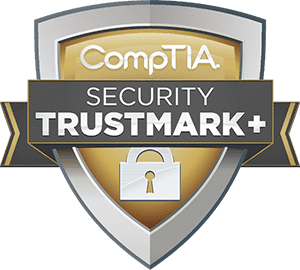We Can Help!
Right Hand Technology Group is CompTIA Security Trustmark+™ certified and has been ranked as one of the top Managed Service Providers in the world. Our experienced staff of Cybersecurity Professionals and Security Engineers have been working with various industries on cybersecurity for more than 20 years.



 SERVICE ORGANIZATION CONTROL (SOC) 2
SERVICE ORGANIZATION CONTROL (SOC) 2







